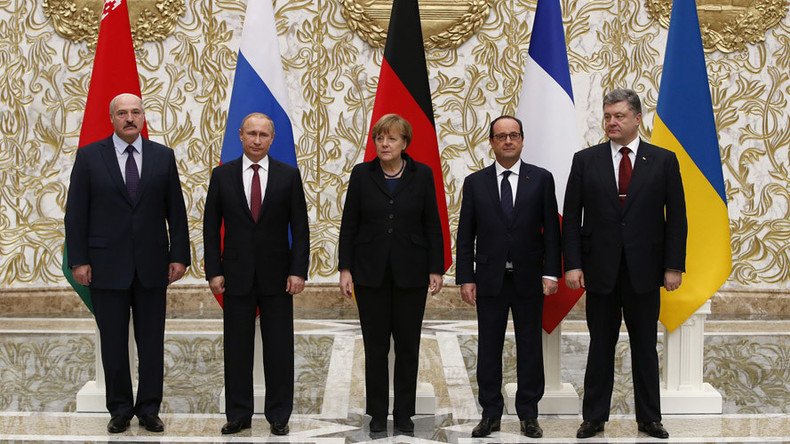Kiev must understand there is no alternative to Minsk

Nearly a year has passed since the Minsk agreements on the settlement in Ukraine were reached. However, the ongoing crisis in south-east Ukraine and problems arising in the course of the implementation of Minsk-II are still a matter of serious concern.
Kiev has been very selective with respect to its obligations, especially as regards implementation of their key political points. Here are just two examples of the Minsk agreements being grossly violated.
First, on the day of the beginning of the withdrawal of artillery, Kiev had to engage in a dialogue starting consultations with Donetsk and Lugansk representatives on how elections were to be held in April on the basis of Ukrainian law and with OSCE oversight.
The second date outlined in the document is 12 March, i.e. a month after the signing of the Minsk agreements Kiev was required to enact a special status law by adopting a resolution designating the territory that this law was supposed to cover. However, this hasn’t been done. A law was passed, the territories marked, but the law said that it didn’t apply to Donetsk and Lugansk.
Let us also remember the amnesty, because the Minsk agreements clearly say that elections should be held in accordance with the OSCE criteria, one of which is to ensure that no one will be subjected to intimidation, harassment, etc. The statement by the Kiev authorities on "elections first, then amnesty" constitute a serious distortion of the sequence and logic of what was really agreed. In accordance with the OSCE elections criteria, the amnesty should be held before the elections.
While Kiev is not contributing to the implementation of the Minsk agreements, the situation in southeastern Ukraine aggravates. Shelling is often witnessed, including the use of weapons that are supposed to have been withdrawn. This leads to civilian casualties and the destruction of property. Regrettably, yet another appeal for a ceasefire made by the Contact Group on January 13 has not been heeded in full. All of this contributes to the growth of tension and complicates progress in other areas of the settlement.
We believe that there is no alternative to the Minsk-II that is the only recipe for a political settlement to the conflict in Ukraine. That’s why Russia and its international partners, including Germany, France and the US continue an active dialogue on ways to settle the crisis in Ukraine.
The statements, views and opinions expressed in this column are solely those of the author and do not necessarily represent those of RT.













